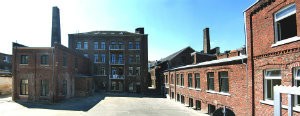
OSHA Safety Regulations
The Occupational Safety and Health Administration was created in 1970 by Congress. The purpose of this department is to ensure that employees in all industries are able to do their jobs in a safe working environment.
When determining what will best keep factory workers safe, OSHA has created certain regulations:
The Use Of Protective Equipment
Osha requires that all employees be given any protective gear that they may need including:
- hard hats
- eye shields
- breathing masks
- gloves
The equipment must be regularly checked for problems and kept clean. The employer must also provide all employees with gear that properly fits.
Employer Assessment of Hazardous Conditions
OSHA requires that all employers regularly check their workplace for potential hazards and if dangerous situations are found to correct them.
Providing Proper Training
Training should be provided to all employees who are working with heavy machinery, tools, and hazardous chemicals.
Management of Hazardous Chemicals
Employers should ensure that all hazardous chemicals are kept in proper containers and that they are not releasing dangerous emissions. There should also be warning signs on all chemicals informing employees of what they are.
Safety Equipment
Fire extinguishers, eyewash stations, and other safety equipment must be provided in multiple locations for employees to use if necessary.
Injuries Frequently Suffered By Factory Workers
Even with OSHA fighting hard to keep factory workers safe, accidents still happen with regularity.
Repetitive Motion Injuries
Doing the same motions over and over can wear down muscles and joints in the body. The damage done to these tissues can leave a factory worker with life-long pain.
Musculoskeletal Disorders
Lifting, bending, crawling,and other physical motions can result in strain and overexertion.
Chemical Exposure
A wide variety of chemicals are used in factories, not only during the manufacturing process but also as part of the maintenance of the machinery used. Exposure to chemicals can cause burns, eye damage, and lung damage.
Slip and Falls
Cords, materials, and spilled liquids can all contribute to a slip and fall accident. Most factory floors are hard concrete or tile and don’t provide the victim any cushion. Serious injuries are frequently suffered due to a fall.
Burns
Heat is often used to mold and create parts or cook food items. If burned, the victim may require hospitalization for months, skin grafting, or even amputation.
Doesn’t Workers’ Compensation Cover Any Injuries?
It is possible for any employee injured on the job to file a workers’ comp claim. It doesn’t matter whose negligence caused the injury, under workers’ compensation laws injured employees should receive benefits.

Insurance companies don’t always make the process of claiming workers’ compensation benefits simple and often victims still find that they need to retain the services of an attorney in order to get the compensation that they need.
Depending on the circumstances surrounding the accident, it may also be possible for the victim to pursue legal action against a third party.
Personal Injury Complaints
While workers’ compensation prevents an employee from filing a claim against their employer, it does not prevent the victim from seeking additional compensation from any third parties whose negligence may have contributed to your accident.
For example, if a defect in a piece of machinery causes an accident, it may be possible to pursue legal action against the manufacturer of the machine or the manufacturer of the defective part.
These personal injury claims allow the victim to recover compensation for things like pain and suffering and emotional trauma – benefits not offered by workers’ comp.
How Long Will It Take For Me To Receive My Benefits?
There are any number of things that could impact how long it takes you to receive your benefits. Keep in mind that even though workers’ comp was designed to protect employees, the insurance companies retain their own lawyers whose job it is to find ways to deny your claim.
If you choose to work with us, we will help you gather all the evidence you need, including accident reports and medical reports, assist you in filling out claims, and appear with you at any formal hearings. The other side will always have legal representation – and in order for you to get what you need, and expedite the process, you should too.
